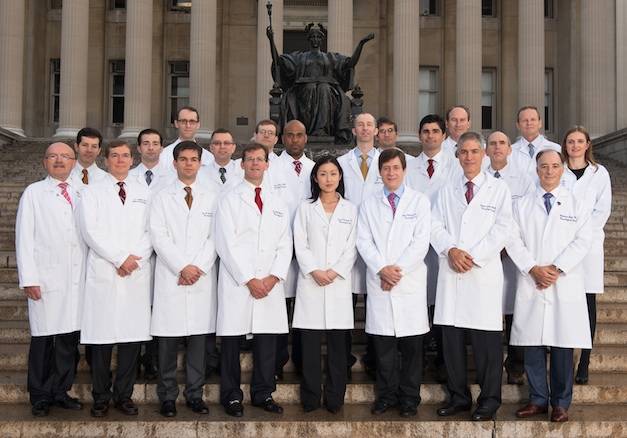If you have trigeminal neuralgia, then you understand how your symptoms can limit your ability to enjoy your everyday lifestyle. The pain may prevent you from engaging in your work and recreational activity.
The pain from trigeminal neuralgia comes from irritation of the 5th cranial nerve, called the trigeminal nerve. This nerve provides your brain with sensory information from your face and jaw. Irritation of the trigeminal nerve can cause incredibly painful symptoms that may lead to significant disability.
Symptoms of trigeminal neuralgia include:
- Sharp, shooting pains in your eye, ear or face
- Jaw pain
- Numbness or tingling in your face
- Muscle spasms by your jaw, face or ear
- Pins and needles feelings in your face
If you have any of these symptoms, you must check in with your doctor right away. He or she can confirm your diagnosis and help you get on track for the correct treatment for you.
There are different types of trigeminal neuralgia. The classic presentation, called type 1 trigeminal neuralgia (TN-1), is typically episodic periods of sharp pains on one side of your face. Atypical trigeminal neuralgia, or TN-2, presents differently and is more difficult to diagnose and treat.
For this reason, you should learn all you can about the different forms of trigeminal neuralgia, especially TN-2, so you can get an accurate diagnosis and the proper treatment.
What is Atypical Trigeminal Neuralgia?
Atypical trigeminal neuralgia, or TN-2, is a special classification of trigeminal neuralgia. It is diagnosed largely by symptom behavior. Symptoms of TN-2 include:
- Constant burning or boring pain through the face and head
- Chronic and constant dull ache in the face and jaw
- Constant abnormal sensation, like tingling or hypersensitivity, in the face and jaw
The location of your symptoms for classic trigeminal neuralgia and atypical trigeminal neuralgia will be the same; the chronicity and constancy of symptoms make atypical trigeminal neuralgia a separate classification of the disease.
The cause of TN-2 is not fully understood. Sometimes a blood vessel presses against the trigeminal nerve as it exits your brain stem. This irritates the nerve and causes the constant facial pain that comes with TN-2.
Some experts have found that demyelination of the trigeminal nerve may be a cause of atypical trigeminal neuralgia. Myelin is a substance that surrounds your nerves and acts like an insulator. When this sheath wears away, it may alter nerve conduction and cause facial pain or abnormal sensation.
Atypical trigeminal neuralgia should be treated just like trigeminal neuralgia. If you are experiencing any pain, abnormal sensation or muscle spasm in your jaw or face, you must see your doctor to get the correct diagnosis and treatment for your condition.
Atypical Trigeminal Neuralgia Treatments
Medication for TN-2
One of the first treatments that your doctor may use to treat your atypical trigeminal neuralgia is medication. Various anti-seizure medications may be used to help decrease the transmission of signals along the trigeminal nerve to your brain.
Unfortunately over time, these medications often become less and less effective, and an alternate medication must be tried to manage your symptoms. Sometimes, a cocktail of various anti-seizure medications are used, with the correct dosage of each differing for each individual patient.
Occasionally baclofen, an anti-spasmodic, is used to treat facial pain and muscle spasm that come with trigeminal neuralgia.
Percutaneous stereotactic rhizotomy
Sometimes various nerve damaging techniques are used to try to quell the pain that comes with trigeminal neuralgia. During a rhizotomy, a needle is inserted through your cheek area and into the trigeminal nerve.
The nerve is then slightly damaged, and this helps to decrease signals of pain from your trigeminal nerve to your brain. While a stereotactic rhizotomy can help your symptoms, they often return, and the procedure may need to be repeated.
Peripheral nerve stimulation
Some patients with atypical trigeminal neuralgia benefit from using electrical stimulation to help decrease the pain that they are feeling. Small nerve stimulators can be inserted near the brainstem where the trigeminal nerve resides, and these can provide stimulation to decrease your pain.
Surgery for atypical trigeminal neuralgia
The definitive treatment for atypical trigeminal neuralgia is surgery. The surgery, called a microvascular decompression, preserves the function of your trigeminal nerve. During the procedure, your neurosurgeon will make an incision behind your ear and remove a small portion of your skull in order to locate your trigeminal nerve.
Then, a small pad is used to cushion the nerve from the vascular structures that are pinching it. The surgery can be effective for treating persistent atypical trigeminal neuralgia, although it is the most invasive of all treatments.
Stereotactic Radiosurgery
A specialized form of radiosurgery, called Gamma Knife Radiosurgery, may be used to treat your trigeminal neuralgia. A highly concentrated dose of radiation can be directed at your trigeminal nerve, slightly damaging it, causing a decrease in nerve transmissions from your face to your brain.
The pain relief from radiosurgery comes gradually over time. Over time, pain can recur for up to 50 percent of patients receiving radiosurgery for TN-2. If the initial treatment result was favorable, a second radio surgical treatment may be indicated.
To get the right treatment for your trigeminal neuralgia, you should make sure you find the best doctor in a top-rated NJ facility that treats facial pain.
Find a Top Facility for the Best Care
When searching for a facility to manage your atypical trigeminal neuralgia, you should take the time to find a top-rated center that provides the best care. Finding the best facility for your trigeminal neuralgia may take a little work, but the end result will be worth it.
Finding the best New Jersey facility for your trigeminal neuralgia includes:
- Asking your family physician or your facial pain specialist for a referral
- Talking to your family and friends about trusted neurosurgeons who treat trigeminal neuralgia
- Searching the internet for top-rated NJ neurosurgeons
By working to find a top New Jersey facility to treat your trigeminal neuralgia, you can be sure to have the best possible outcome for your trigeminal neuralgia treatment.
The Best Neurosurgeons for Facial Pain
To get the best treatment for your atypical trigeminal neuralgia, you should find the best NJ neurosurgeon to provide your care. Working with a top-rated surgeon can make you feel at ease about your trigeminal neuralgia and give you confidence in your treatment regimen for your condition.
Qualities of a top NJ neurosurgeon for facial pain include:
- Listening to your concerns and answers your questions about your condition
- Offering you multiple treatments for your atypical trigeminal neuralgia
- Working with you and your insurance company to deliver cost effective care
- Giving you a sense of trust in the care you are receiving
When meeting with your doctor about your atypical trigeminal neuralgia, you should feel like the both of you are in a therapeutic alliance to find the best treatment for your condition. By finding a trusted NJ neurosurgeon who works in a top-rated facility that treats facial pain, you can be sure to have the best possible outcome with your atypical trigeminal neuralgia treatment.


